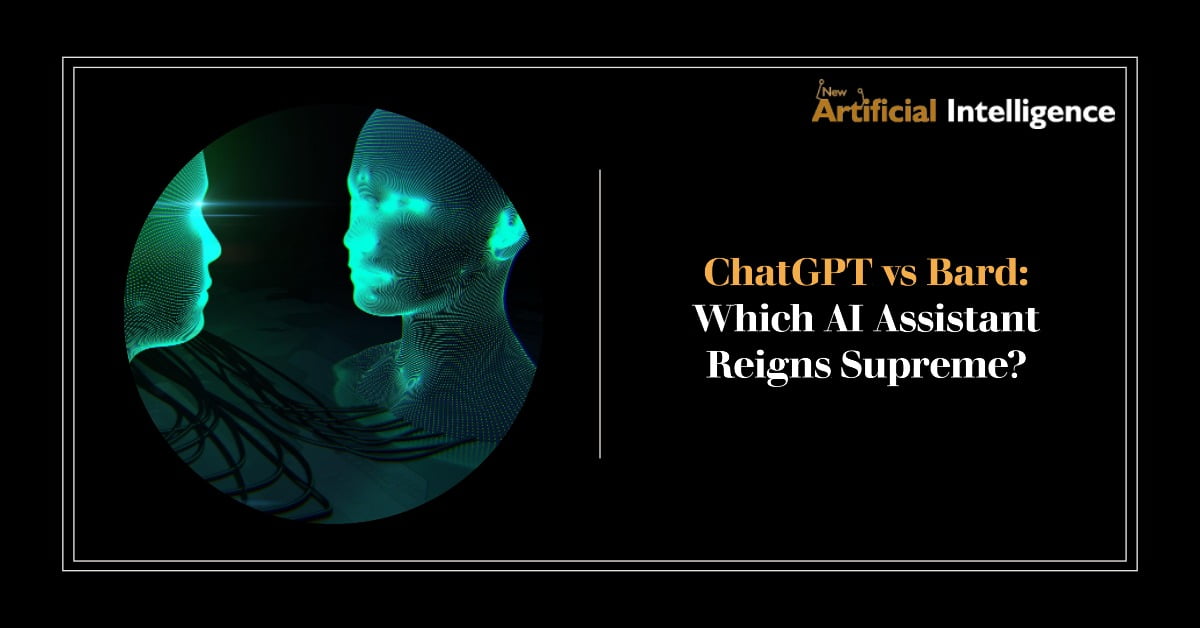ChatGPT vs Bard
Table of Contents
Large language models (LLMs) are abuzz with two titans scuffling for the crown: ChatGPT, the established champion, and Bard, the growing celebrity from Google AI. But who, among those linguistic powerhouses, reigns supreme?
In this ChatGPT vs Bard blog, we will guide you through this charming arena, decoding the strengths and weaknesses of every champion to help you determine which AI assistant best fits your needs.

Round 1: The Pedigree and Prowess
- ChatGPT: OpenAI’s ChatGPT boasts an outstanding lineage built upon the foundation of GPT-3, a pioneer within the LLM landscape. Known for its creative flair and flexibility, ChatGPT excels in producing extraordinary innovative textual content codecs, from poems to code, and tasty conversational dialogues.
- Bard: Hailing from Google AI, Bard carries the torch of PaLM 2, a language version that made waves in medical studies. Leveraging Google’s know-how in multimodal mastering, Bard boasts an advanced understanding of pictures, films, and code alongside textual content. Its prowess lies in tackling various obligations, from summarizing complex actual topics to imparting informative solutions to complicated queries.

Round 2: The Battleground of Strengths
- Creativity: ChatGPT shines inside the realm of ingenious writing, crafting captivating memories, poems, and scripts. Its playful nature and knack for producing witty responses make it a delightful partner for informal interactions.
- Accuracy and Factuality: Bard flourishes on precision, drawing upon Google’s enormous knowledge base to deliver properly sourced records and insightful solutions. Its potential to handle and understand multimodal data gives it a facet in navigating complicated actual subjects and providing dependable summaries.
- Versatility: Bard’s electricity lies in its adaptability. Whether you want accurate summaries, code era, or translation help, Bard’s numerous skillset equips it to handle various obligations effectively. ChatGPT, while being adept at verbal exchange and innovative writing, may also conflict with more excellent technical eventualities.
- Explainability and Transparency: One of Bard’s key strengths is its focus on explainability. It strives to shed light on its reasoning manner, offering insights into how it arrives at its outputs. This transparency builds belief and permits users to understand the model’s limitations and biases better. ChatGPT, on the other hand, operates more like a black field, making its choice-making technique less transparent.

Round 3: The Arena of Weaknesses
- Bias and Fairness: As with any LLM, both models are vulnerable to inheriting biases in their training information. Addressing those biases and ensuring fair and independent outputs remains an undertaking for each ChatGPT and Bard.
- Limited Access: Currently, each fashion’s right to entry is constrained. ChatGPT gives restrained access through the API and studies gear, while Bard is, by and large, used for studies inside Google. The broader public awaits the wider availability of those practical tools.
- Ethical Considerations: The capacity misuse of LLMs increases ethical issues. ChatGPT and Bard require responsible improvement and deployment, ensuring transparency, accountability, and accountable use of their abilities.
The Verdict: A Draw, a Dance, or a Shared Throne?
Declaring a novel “winner” in this warfare might be comparable to deciding between poetry and technological know-how. Ultimately, the “quality” AI assistant relies on your unique wishes and preferences.
- For the creative soul searching for witty verbal exchange and imaginative writing, ChatGPT’s charm and aptitude remain captivating.
- For the seeker of understanding and reliable information, Bard’s actual accuracy and various skill sets offer an effective tool for knowledge and navigating the world.
However, destiny won’t maintain a binary victory. As each fashion preserve evolves, we might witness a lovely dance in which ChatGPT’s innovative spark merges with Bard’s complete expertise to create a next-era LLM capable of artistic brilliance and genuine precision.
Ultimately, the actual victor in this area can be the only one who fosters accountable development, open dialogue, and equitable access to this powerful gear. Whether it’s Bard, ChatGPT, or a future collaboration, the intention remains the same: to harness the energy of AI for the benefit of all.
So, expensive readers, be part of us on this fascinating journey! Share your thoughts, preferences, and issues about ChatGPT and Bard. Let’s form AI’s destiny collectively, ensuring that those linguistic titans reign not only ideally but also responsibly.
Remember, the communique does not cease here. Keep the AI dialogue alive, and collectively, we can unencumber the actual capability of those excellent tools!
FAQs about ChatGPT vs. Bard:
Which AI assistant is extra creative?
- ChatGPT: Its electricity lies in producing imaginative text codecs like poems, testimonies, and scripts, excelling in casual and creative conversations.
- Bard: While no longer, more often than not, centered on innovative writing, Bard can nevertheless generate unique innovative text codecs, although its accuracy and genuine basis would restrict its purely creative output.
Which AI assistant is more reliable with information?
- Bard: Backed by Google’s vast understanding base and multimodal studying, Bard prioritizes accuracy and fact-checking, making it a sturdy choice in search of reliable data and summaries.
- ChatGPT: While no longer designed with fact-checking as its center consciousness, ChatGPT can nonetheless get the right of entry to and process authentic information. However, its innovative nature might prioritize engagement over strict accuracy at times.
Which AI assistant is more versatile?
- Bard’s numerous skillset encompasses duties like authentic summaries, code technology, translation, and statistics retrieval, making it a flexible tool for tackling diverse and demanding situations.
- ChatGPT: While adept at verbal exchange and innovative writing, ChatGPT’s skills may be more restricted in technical situations or obligations requiring accuracy.
Which AI assistant is more prominent?
- Bard: One of Bard’s key strengths is its recognition of explainability. It strives to shed light on its reasoning technique, imparting insights into how it arrives at its outputs. This builds consumer belief and facilitates identifying ability biases.
- ChatGPT: Operating more like a black field, ChatGPT’s decision-making procedure is less transparent, making understanding its reasoning and capability biases tougher.
Who could have a more comprehensive right of entry into destiny?
- Both ChatGPT and Bard are currently limited in their rights of entry. ChatGPT gives some access through APIs and study tools, while Bard is mainly used for research within Google. Wider public availability for both fashions is still awaited.












3 thoughts on “Demystifying ChatGPT vs Bard : Which AI Assistant Reigns Supreme?”